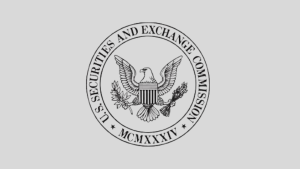The Securities and Exchange Commission (SEC) has found itself at the center of a legal and political storm following its recent approval of a groundbreaking climate disclosure rule. The rule, passed by a narrow 3-2 vote, mandates that public companies divulge details about their climate risk, marking a significant departure in regulatory oversight.
Immediately after its approval, the SEC's rule faced swift legal challenges from Republican-led states and energy companies. Despite the SEC's efforts to assuage concerns by scaling back the original proposal, which included omitting certain emissions reporting requirements, opposition persisted.
David Zaring, a professor at the University of Pennsylvania's Wharton School of Business, noted the widespread discontent, observing that both corporate entities and states harbor reservations about a capital markets regulator delving into climate-related mandates.
Environmentalists, too, have expressed dismay over the SEC's perceived retreat from robust climate reporting standards. The removal of key measures prompted threats of legal action, highlighting the contentious nature of the rule's revisions.
Legal challenges against the SEC's rule are expected to center on the "major questions" doctrine, a legal theory advocating for clear congressional authorization for significant agency actions. This doctrine gained prominence following a landmark 2022 Supreme Court ruling and has since been utilized to contest ambitious climate initiatives.
While the SEC argues that its disclosure requirements fall within its purview to protect investors, critics contend that the agency has overstepped its bounds by delving into climate policy. The invocation of the “major questions” doctrine underscores the depth of legal scrutiny the rule faces.
The geographical jurisdiction of legal challenges remains uncertain, with cases potentially landing in politically conservative courts, such as the 5th U.S. Circuit Court of Appeals. This uncertainty adds a layer of complexity to an already contentious legal landscape.
The potential invocation of the Administrative Procedure Act and First Amendment claims further complicates the legal battleground. Critics argue that the SEC's rule infringes on companies' free speech rights and lacks a strong scientific basis, heightening the likelihood of protracted legal battles.
Despite the challenges, SEC Commissioner Caroline Crenshaw defended the rule, emphasizing the agency's authority to require disclosures in the public interest. She highlighted the importance of nonfinancial metrics, including greenhouse gas emissions, in providing investors with comprehensive information.
As legal battles loom, the SEC's climate disclosure rule remains a focal point of debate, reflecting broader tensions surrounding environmental regulation and corporate accountability. The outcome of these legal challenges will undoubtedly shape the trajectory of climate policy and regulatory oversight in the years to come.






















